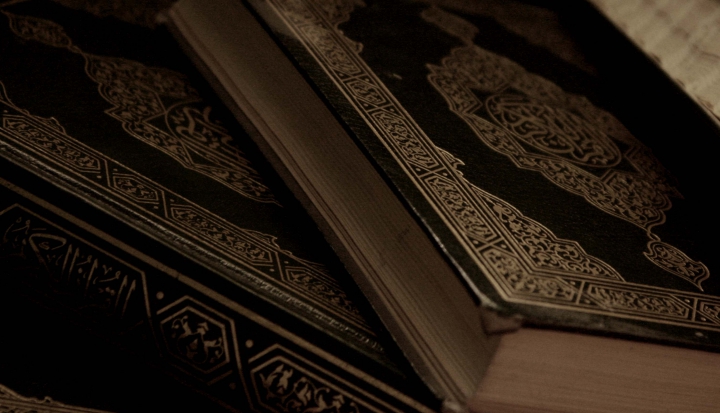In a recent episode of the CBS show Madam Secretary, there’s a scene where the Secretary of State’s husband—a renowned religion professor—is offered a position leading a special intelligence taskforce to track down Islamic terrorists. “Your religious expertise should be invaluable,” the president and his chief of staff tell Dr. McCord when they offer him the job. When he replies with, “My background is really more medieval,” they chuckle. “Well, so is our enemy,” the chief of staff responds.
I had to laugh. I majored in religion in college, have a graduate degree in theology, and currently work at U.S. Catholic magazine. The thought of myself or any of my classmates, colleagues, or professors leading a super-secret spy team to single-handedly bring down ISIS is, to put it mildly, a bit of a stretch.
But then I read real-life Secretary of State John Kerry’s essay in America. “If I headed back to college today, I would major in comparative religions rather than political science,” he says. “Religious actors and institutions are playing an influential role in every region of the world and on nearly every issue central to U.S. foreign policy.”
Apparently, television isn’t as far from reality as I thought. And while the thought of my theology professors as super spies is still a little much, I’m starting to see what Kerry meant.
Before all the dense theological tomes, before the immersion into history and biblical studies and the classes in pastoral care, liturgy, and public speaking, I entered college as a chemistry and environmental studies major. I wanted to save the world—even if my 18-year-old self hadn’t quite figured out quite what that would look like. When I was informed I had to take a first-year writing seminar, I chose the one that seemed to overlap best with my chosen majors—“Religion and the Environment.” It wasn’t long before I was hooked. I had never considered how people’s faiths affect their actions in the world or how our religious beliefs can motivate us to advocate for climate justice or to deny climate change altogether.
Different religious faiths have completely different origin stories and understand the relationships between God, humanity, and the earth in completely different ways. If you fervently believe that Christ is going to imminently return, there’s no reason to make preserving the earth for millennia a priority. If you believe in a literal interpretation of the Bible, God’s command that humans should have “dominion over the fish of the sea, and over the birds of the air, and over the cattle, and over all the wild animals of the earth” (Genesis 1:26) is going to affect how you relate to God’s creation. If, like Pope Francis, you believe that God is present in every aspect of creation, that gives you an entirely view of the importance of conservation.
I may not have much (or any) experience in international affairs, but I’m sure the same can be said for many of our political interactions with other countries, cultures, and faiths. Another, more recent America piece by Thomas Petriano agrees: The study of religion is important precisely because it’s not just about religion. “The study of religion [provides] an important space for students to enter into conversation with the wisdom traditions of the world about the great questions of life,” he writes. Done well, the academic study of faith traditions inspires students to figure out their place in the world and what priorities they hold. It teaches them to understand people who are different, calls them to work toward justice, and gives them the ability to understand the events of the world around them.
Here in the United States, we act like faith and religious belief are something private. We have been well-trained not to bring up faith or politics at parties or social gatherings, in fear of giving offense or initiating an argument. We prefer the signs of our faith to be small and indiscreet and look askance at those who are proclaiming their beliefs too loudly—who wear head scarves or yarmulkes or who have large WWJD bumper stickers on their cars. But if we never talk about our faiths, how can we really know each other? If we don’t start these conversations, we’ll never understand why the Muslim feminist chooses to cover her head or why the guy we sit next to in class wears a large rosary around his neck.
Traveling through India, shopkeepers, fellow train travelers, and sometimes complete strangers will stop and ask, “What religion are you?” (This is often followed closely by “Are you married?” or “Do you live with your parents?”) It’s their way of figuring out who you are, how you fit into their picture of society, or what kinds of small talk to bring up next. It’s the equivalent of meeting someone at a party here in the United States and asking, “So, what do you do for a living?” As an American tourist, it’s a little shocking to be confronted in the street by someone demanding to know if you believe in Jesus. But if you’re willing to answer, that single question can lead to deep conversations about the role of religion in both your lives, who they think God is, and their views on interfaith relations. While I was studying abroad in Hyderabad, India, I learned far more about how Hindus and Muslims alike see the world than I could in a whole four years of study.
It is a realization that is growing around the country. A couple weeks ago, Harvard and Wellesley College rolled out an online course on world religions. In the first week, over 20,000 people signed up, many of whom cited the current political and social climate as their rationale. Maybe our country is finally reaching a tipping point, where we’re willing to reach out to people who look and act different and figure out who they really are and what motivates them.
But while an online course is an excellent start, it’s not enough to simply learn about other faiths. In order to really understand and to effect change in how we all see each other, we actually need to talk to each other. It takes courage to go up to the person who obviously has different beliefs than you and ask them about their religion. It’s hard to go to worship services with a Jewish or Muslim or Hindu friend, when you probably can’t even understand the language. And it’s scary to go even deeper and try to understand what really motivates other people.
So let’s start small. Let’s be a little less afraid of someone saying they don’t agree with us. Let’s take the time to think about how our religious beliefs impact how we see the world. Let’s get coffee with a friend and talk about these big questions. Let’s introduce ourselves and see each other through new eyes. Who knows, we might be able to solve some of the world’s biggest problems that way.
Image: Flickr cc via Abdulrahman Alkhorayef










